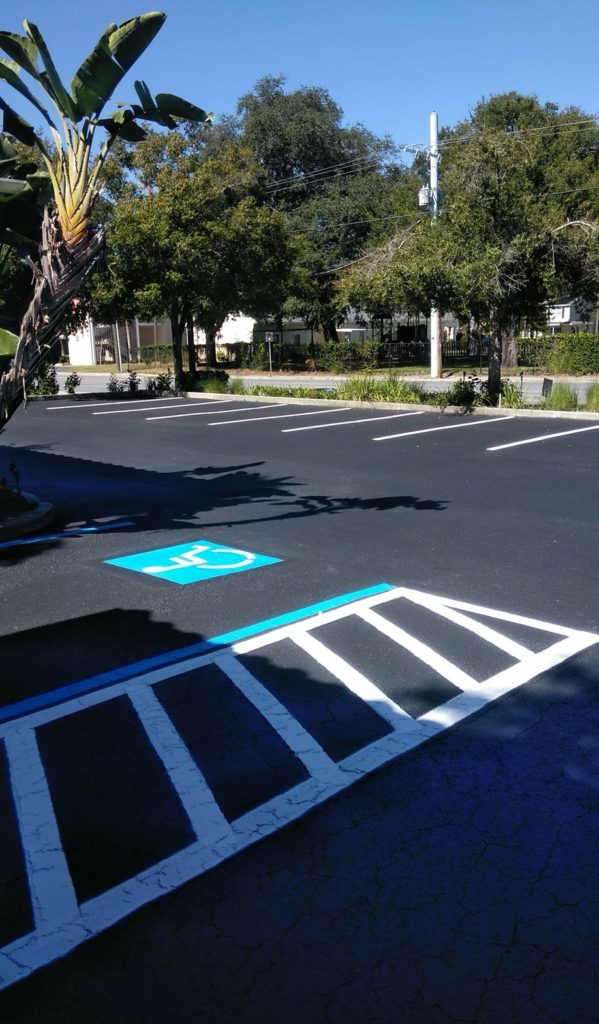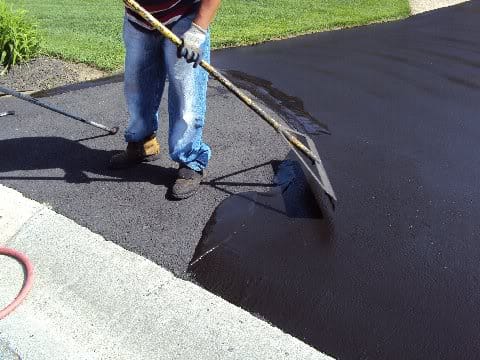Release the Potential: Regrading and Asphalt Sealing for Business Spaces
Release the Potential: Regrading and Asphalt Sealing for Business Spaces
Blog Article
Hot Mix Asphalt: A Lasting Solution for Pavement
Warm Mix Asphalt (HMA) has emerged as a leading lasting option for sidewalk solutions, offering a myriad of cutting-edge modern technologies and ecological benefits. As the need for environmentally friendly building techniques expands, discovering the subtleties of HMA's sustainability can supply beneficial insights right into the future of pavement services.
Environmental Benefits of Warm Mix Asphalt

In Addition, Hot Mix Asphalt assists to mitigate city heat island results. Its dark shade soaks up sunshine, lowering the amount of warm showed back right into the environment compared to lighter-colored pavements. This can decrease ambient temperature levels in metropolitan areas, reducing the demand for cooling and ultimately lowering energy intake.
On top of that, Hot Mix Asphalt adds to boosted stormwater monitoring. Its porous nature allows water to infiltrate the pavement and charge groundwater products, minimizing overflow and the risk of flooding. These ecological benefits make Warm Mix Asphalt a lasting choice for paving roads and freeways.
Power Efficiency in HMA Manufacturing
Is energy performance a crucial aspect in the manufacturing of Hot Mix Asphalt (HMA)? Energy plays a substantial role in the production of HMA, affecting both expense and ecological sustainability. One essential facet of energy performance in HMA manufacturing is the use of warm mix asphalt (WMA) innovations.
In addition, innovations in plant innovations have actually led to more energy-efficient HMA manufacturing procedures. By enhancing energy usage in HMA manufacturing, the industry can reduce its carbon footprint while preserving high-quality sidewalk products.
Recyclability of Warm Mix Asphalt
The recyclability of Hot Mix Asphalt (HMA) is an essential element of its sustainability and long-term ecological influence. HMA is among one of the most recycled products in the United States, with over 100 million lots of Visit Website reclaimed asphalt sidewalk (RAP) being recycled annually in new sidewalk building and construction. Reusing HMA offers a number of environmental advantages, such as decreasing the need for virgin materials, lowering energy intake during manufacturing, and decreasing the quantity of waste sent out to garbage dumps.
The procedure of recycling HMA entails grating the existing sidewalk, crushing it into smaller pieces, and mixing it with new accumulation and asphalt binder to produce a recycled mix. Overall, the recyclability of HMA plays a significant duty in advertising sustainable practices within the pavement industry.

Long-Term Performance of HMA
Asphalt pavements show longevity and resilience over an extended duration, showing the long-lasting efficiency of Warm Mix Asphalt (HMA) Furthermore, advancements in HMA innovation, such as the usage of polymer-modified binders and warm mix asphalt, have even more enhanced the sturdiness and durability of HMA go to the website sidewalks. By focusing on high quality building and maintenance methods, HMA continues to show itself as a economical and sustainable remedy for lasting sidewalk framework.

HMA: Longevity and Sustainability
Demonstrating both toughness and sustainability, Hot Mix Asphalt (HMA) has come to be a cornerstone in the building of resilient sidewalk frameworks - regrading. HMA's toughness comes from its ability to hold up against hefty lots, harsh weather problems, and high website traffic quantities, making it a reliable choice for highways, freeways, and airport terminal runways. The structure of HMA, which usually consists of accumulations, binder, and filler, plays a vital function in enhancing its longevity and resistance to tear and put on
Moreover, HMA's sustainability depends on its recyclability and energy-efficient manufacturing process. The capability to recycle reclaimed asphalt pavement (RAP) in new HMA mixtures lowers the need for virgin materials and minimizes the environmental influence of pavement building and upkeep. Furthermore, the power performance of generating HMA lies in see this here its lower mixing temperatures compared to other sidewalk products, bring about minimized power intake and greenhouse gas discharges.
Final Thought
In conclusion, hot mix asphalt (HMA) provides a lasting remedy for sidewalk with its ecologically friendly characteristics. HMA's recyclability, power performance in manufacturing, and long-lasting resilience make it an environmentally friendly selection for road building and construction.
HMA is one of the most recycled products in the United States, with over 100 million tons of reclaimed asphalt pavement (RAP) being recycled annually in new sidewalk building.The process of recycling HMA includes grating the existing sidewalk, squashing it right into smaller items, and mixing it with brand-new aggregate and asphalt binder to create a recycled mix.Asphalt pavements demonstrate sturdiness and durability over a prolonged period, reflecting the long-lasting efficiency of Hot Mix Asphalt (HMA) In addition, advancements in HMA technology, such as the usage of polymer-modified binders and cozy mix asphalt, have additionally enhanced the sturdiness and long life of HMA pavements. The capability to reuse redeemed asphalt pavement (RAP) in brand-new HMA mixes reduces the demand for virgin materials and lessens the environmental impact of sidewalk construction and maintenance.
Report this page